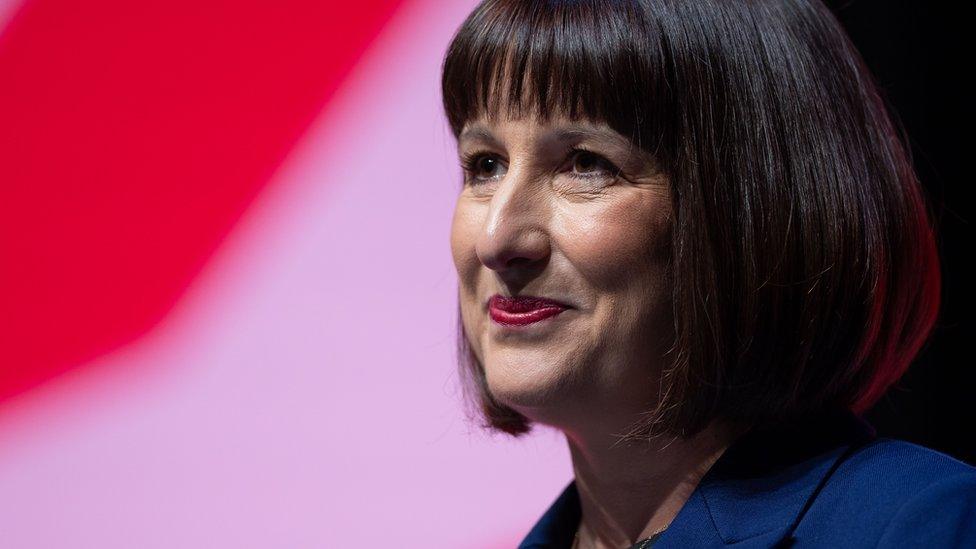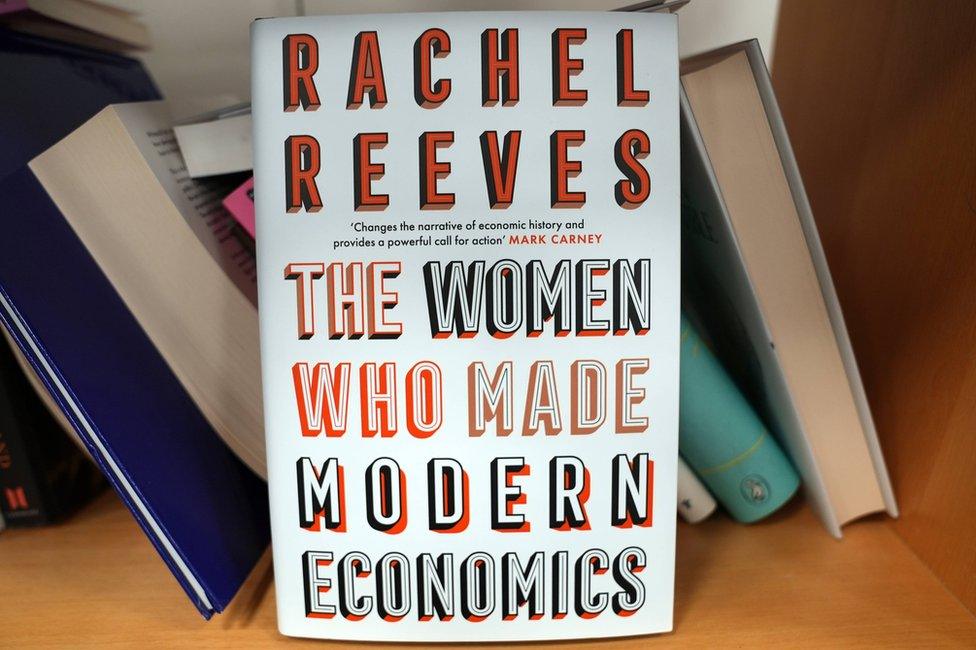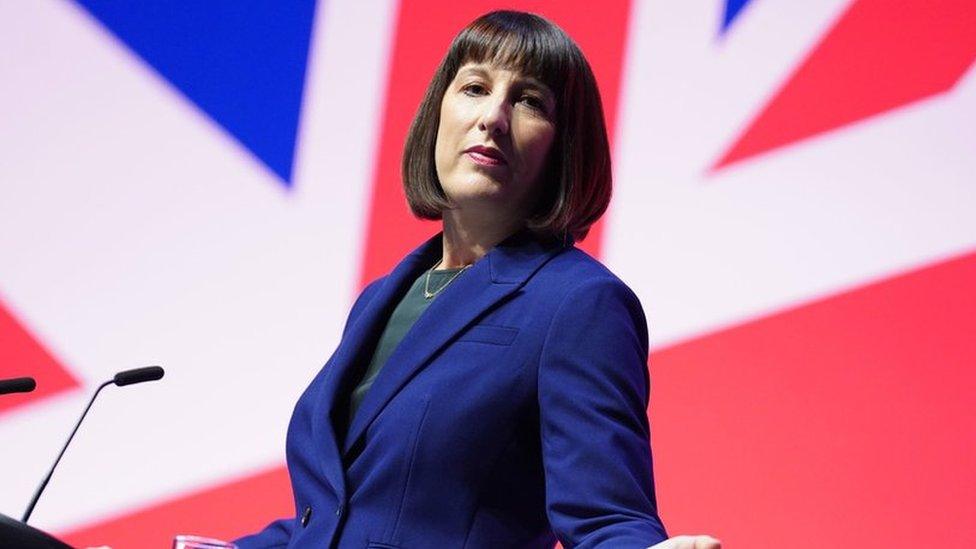Rachel Reeves says she 'should have done better' amid plagiarism row
- Published

Labour's shadow chancellor Rachel Reeves has said she "should have done better", after it emerged some passages of her new book were lifted from other sources without acknowledgment.
The Financial Times reported, external her book reproduced material from websites including Wikipedia.
Ms Reeves told the BBC some sentences "were not properly referenced" and this would be corrected in future reprints.
However, her team denied claims of plagiarism.
Conservative MPs have ridiculed Ms Reeves on social media, with party chairman Greg Hands branding her a "copy and paste shadow chancellor".
Ms Reeves, a former Bank of England economist, is hoping to become the country's first female chancellor if Labour wins the next general election.
The book, The Women Who Made Modern Economics, was launched at an Institute for Government event on Wednesday evening.
The Financial Times said its reporters had spotted more than 20 examples of apparent plagiarism in the book, including entire sentences and paragraphs.
It said these mostly contained biographical information.
In an interview with BBC Radio 4's Broadcasting House, Ms Reeves said: "I'm the author of that book, I hold my hands up and said, I should have done better."
She added: "Obviously, I had research assistants on the book, but I take responsibility for everything that is in that book.
"But for me, what I wanted to do is to bring together the stories of these women.
"And if I'm guilty of copying and pasting some facts about some amazing women and turning it into a book that gets read, then I'm really proud of that."
It came after a spokesperson for Ms Reeves said "inadvertent mistakes" would be "rectified in future reprints".

The BBC has checked the examples highlighted by the FT and found some material in the book was very similar to online sources.
For example, a sentence about the relationship between author H.G. Wells and economist Beatrice Webb is identical to one on Ms Webb's Wikipedia page, external.
However, Ms Reeves told the BBC it came from a book which was listed in the bibliography.
Another paragraph about international aid under New Labour is very similar to a foreword written by Hilary Benn, who is now the shadow Northern Ireland secretary, on the Tony Blair Institute for Global Change website, external.
Only a few words in the paragraph in the book differ from Mr Benn's foreword.
At the book's launch event, which took place the evening before the Financial Times article was published, Ms Reeves was asked how she found the time to write it.
In response she said: "My day job is pretty consuming and I've got two primary aged children but I wanted to carve out time to write this book.
"In the acknowledgements I acknowledged the research assistants that I had, particularly on the facts and the detail that went into the pen portraits of the women that I speak about.
"And that came from a range of sources, from books, from interviews, from articles, from Wikipedia."


Book launches at Westminster are ten-a-penny.
You can measure how an author is perceived - and which way the political wind is thought to be blowing - by who and how many turn out for a book launch.
If you manage to justify having an "overflow room" and there is an excitable vibe about the warm white wine clutching attendees, Westminster is collectively saying you're on the up.
At Rachel Reeves's book launch on Wednesday night, there was that vibe and there was that overflow room.
The whole thing oozed with a sense of perceived imminent power: that the author of the book, The Women Who Made Modern Economics, would soon be chancellor of the exchequer.
Well, let's see - that's for the electorate to decide.
But with hindsight her reference to Wikipedia in the question and answer session - which struck me as odd at the time - sounds rather like a reference in advance to the criticism she knew was coming.
The whole premise of her book is there has been a whole load of economists overlooked and uncredited for their work.
So it's unfortunate, to say the least, that that is precisely what she is now being accused of.

Publisher Basic Books said: "When factual sentences were taken from primary sources, they should have been rewritten and properly referenced.
"We acknowledge this did not happen in every case. As always in instances such as these, we will review all sources and ensure any omissions are rectified in future reprints."
The statement added: "At no point did Rachel seek to present these facts as original research.
"There is an extensive and selective bibliography of over 200 books, articles and interviews.
"Where facts are taken from multiple sources, no author would be expected to reference each and every one."
Tory Party chairman Mr Hands said the issue was "potentially very serious".
"Labour literally have no new plans for this country," he wrote on X, branding Ms Reeves a "copy and paste shadow chancellor".
Other Conservatives also seized on the issue, with MP Bob Seely saying it was "appalling that Labour's second most senior politician appears to have been caught plagiarising the work of others".
Ms Reeves has written two other books, about women in Parliament and Labour politician Alice Bacon.
Related topics
- Published9 October 2023
